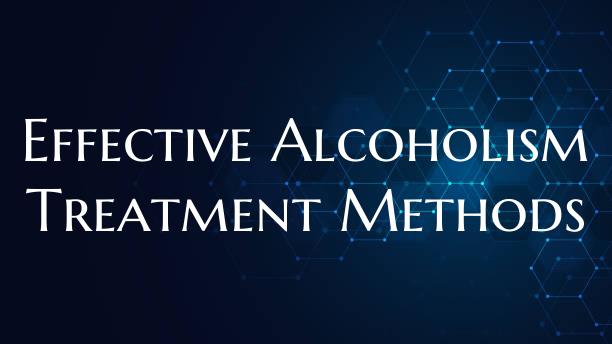
Effective Alcoholism Treatment Methods
Alcoholism, also known as Alcohol Use Disorder (AUD), is a serious and complex condition that affects millions of people worldwide. Seeking treatment for alcoholism is a crucial step towards recovery and leading a healthier, more fulfilling life. Fortunately, there are several effective treatment methods available that can help individuals overcome alcohol addiction and regain control over their lives.
1. Detoxification: The first step in alcoholism treatment is often detoxification, which involves clearing the body of alcohol. This process can be medically supervised to manage withdrawal symptoms and ensure the individual's safety. Detox is essential to help the body adjust to functioning without alcohol.
2. Behavioral Therapies: Behavioral therapies are a cornerstone of alcoholism treatment. These therapies aim to help individuals change their attitudes and behaviors towards alcohol use, develop coping strategies, and acquire skills to maintain sobriety. Cognitive-Behavioral Therapy (CBT), Motivational Enhancement Therapy (MET), and Contingency Management are examples of effective behavioral therapies for treating alcoholism.
3. Medications: Several medications have been approved by the FDA to help individuals reduce their alcohol cravings and manage withdrawal symptoms. Medications such as disulfiram, acamprosate, and naltrexone can be prescribed as part of a comprehensive alcoholism treatment program.
4. Support Groups: Support groups like Alcoholics Anonymous (AA) provide peer support and encouragement for individuals struggling with alcoholism. These groups offer a sense of community, understanding, and accountability, which can be instrumental in maintaining sobriety over the long term.
5. Dual Diagnosis Treatment: Many individuals with alcoholism also have co-occurring mental health disorders. Dual diagnosis treatment addresses both substance use and mental health issues simultaneously to ensure comprehensive care and better treatment outcomes.
6. Family Therapy: Involving family members in the treatment process can improve support systems and help individuals in recovery maintain sobriety. Family therapy helps address familial dynamics, improve communication, and educate loved ones about alcoholism and its impact.
7. Lifestyle Changes: Adopting healthy lifestyle changes, such as regular exercise, balanced nutrition, stress management techniques, and engaging in fulfilling activities, can support recovery from alcoholism and promote overall well-being.
Ultimately, the most effective alcoholism treatment method varies for each individual, and a personalized approach tailored to their specific needs and circumstances is crucial. Seeking professional help from healthcare providers, addiction specialists, therapists, and support groups can provide the necessary guidance and support to overcome alcoholism and achieve lasting recovery. Remember, recovery is possible, and taking the first step towards seeking help is a significant milestone on the journey to sobriety.